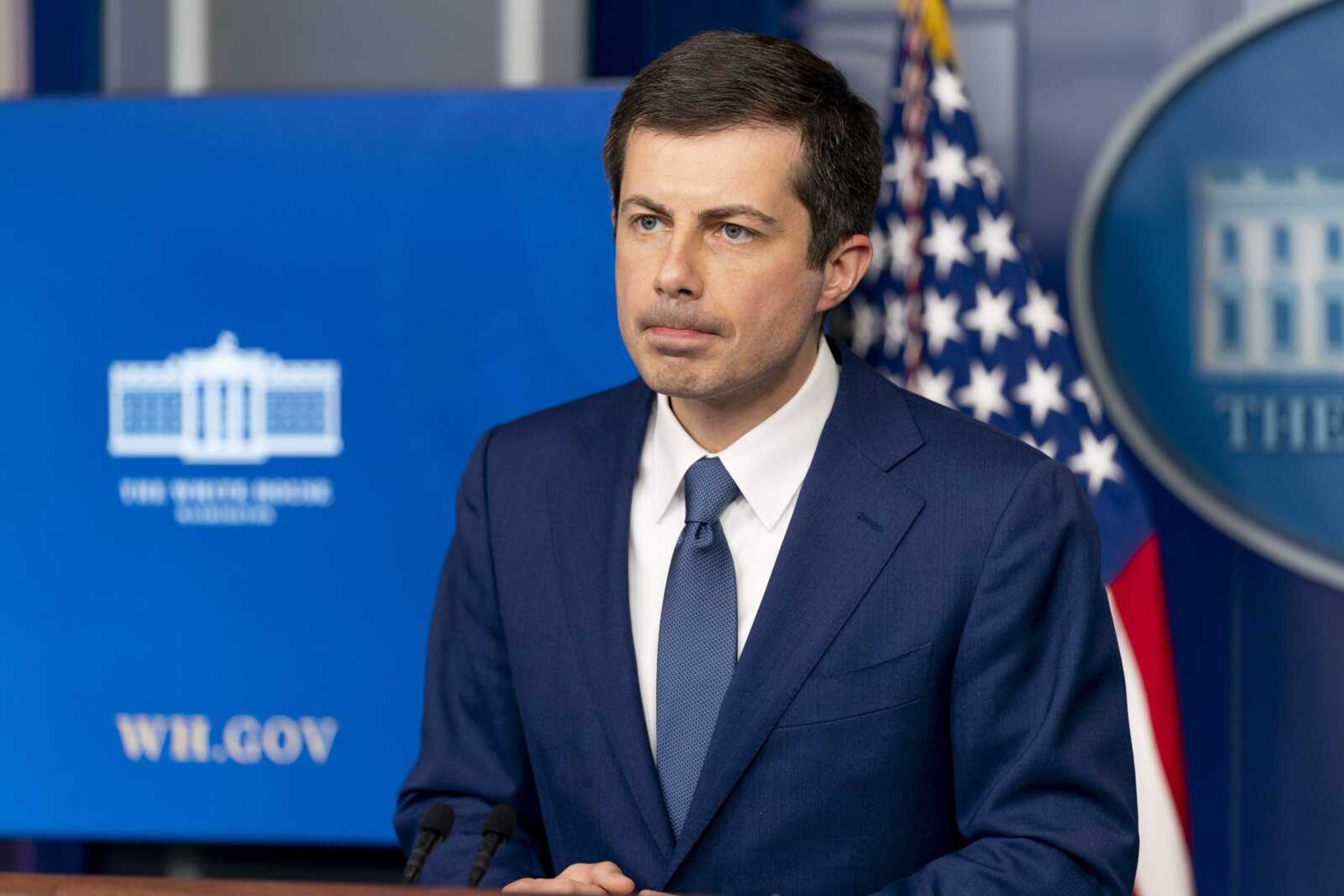Biden seeks more for schools, health care and housing
WASHINGTON -- President Joe Biden released a $1.5 trillion wish list for the federal budget on Friday, asking for an 8.4% increase in agency operating budgets with substantial gains for Democratic priorities like education, health care, housing and environmental protection...
WASHINGTON -- President Joe Biden released a $1.5 trillion wish list for the federal budget on Friday, asking for an 8.4% increase in agency operating budgets with substantial gains for Democratic priorities like education, health care, housing and environmental protection.
The request by the White House budget office spells out Biden's top priorities as Congress weighs its spending plans for next year. It's the first financial outline of Democrats' broader ambitions since the expiration of a 2011 law that capped congressional spending.
At stake is roughly one-third of the huge federal budget that is passed by Congress each year, funding the military, domestic Cabinet department operations, foreign policy and homeland security. The rest of the budget involves so-called mandatory programs that are locked in and basically run on autopilot, chiefly Social Security, Medicare and Medicaid.
This so-called discretionary spending passes each year on a bipartisan basis through Capitol Hill's time-tested appropriations process. The Biden request provides a significantly smaller 1.6% increase to the $700 billion-plus Pentagon budget than it provides to domestic accounts. Homeland security accounts would basically be frozen, reflecting opposition among Democratic progressives to immigration security forces.
The appropriations process was, in fact, one of the few consistent success stories of former President Donald Trump's tumultuous four-year tenure in office, but this year's budget cycle is not governed by a broader outline. The lapse of formal "caps" on appropriations opens the door to more domestic spending favored by Biden and Democrats but invites a battle with Republicans over military accounts.
The Biden administration believes the caps, imposed by a long-abandoned 2011 budget deal, caused a decade of severe underinvestment in public services that the president is now trying to turn around with large increases that would mostly bypass national security programs.
An administration official, speaking on condition of anonymity to discuss private conversations, said the request would bring spending in line with historic averages. It seeks $769 billion in non-defense discretionary funding, a sum the official said is equal to the 30-year average of spending relative to the overall U.S. economy.
Biden wants to increase the Education Department's budget by a massive 40.8% to $102.8 billion, which includes an additional $20 billion in grants for high-poverty schools.
The Department of Health Human Services would get a 23.1% boost to $133.7 billion. There would be additional funds to combat opioid addiction and for the Centers for Disease Control and Prevention, whose mission took on new urgency in the aftermath of the coronavirus pandemic. The administration is also asking for $6.5 billion to establish a biomedical research agency to address cancer, diabetes, Alzheimer's and other diseases.
Biden is seeking a $14 billion increase across government agencies to address climate change. Housing and Urban Development would get a 15.1% increase to $68.7 billion, primarily to provide housing vouchers for an additional 200,000 families. The administration also seeks more money for civil rights enforcement addressing gun violence as a public health epidemic.
Passing the president's plan as written through Congress is typically a long shot. Recent history and guaranteed conflicts with Republicans are likely to force lawmakers to put discretionary accounts on autopilot for months after the Sept. 30 expiration of the budget year.
The plan also details how the Biden administration will try to deal with the influx of arrivals at the U.S. southern border. It includes $861 million to invest in Central America to address the forces driving people to migrate to the United States. An additional $345 million would go to immigration services to resolve delays in years-long naturalization and asylum cases. The budget for the Executive Office of Immigration Review would jump 21% to $891 million in order to hire 100 new immigration judges and support teams to reduce the existing backlogs.
The president seeks modest increases for national security. Defense -- the largest department in the discretionary plan -- would get a 1.6% increase to $715 billion. Homeland Security would edge up 0.2% to $52 billion.
Friday's request does not include plans for tax revenues or mandatory federal spending. Nor does it include the planned spending in Biden's infrastructure plan.
Connect with the Southeast Missourian Newsroom:
For corrections to this story or other insights for the editor, click here. To submit a letter to the editor, click here. To learn about the Southeast Missourian’s AI Policy, click here.









